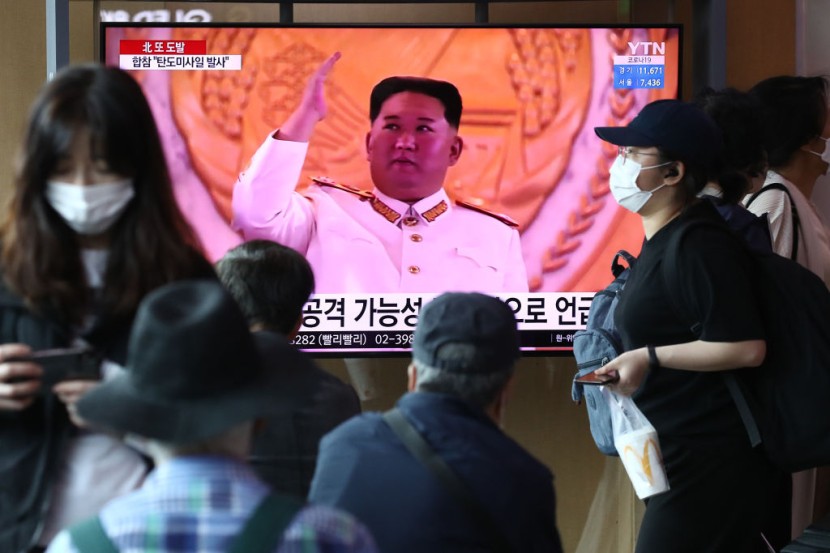
North Korea has reported an "explosive" COVID-19 outbreak that has infected over 350,000 people a day after the country declared its first-ever coronavirus case that sparked fears in the isolated country now under "major national emergency."
Authorities reported 18,000 new "fever cases," and six deaths on Thursday, one of whom tested positive for the BA.2 sub-variant of Omicron, according to state media KCNA.
Because of its limited testing capability, the North Korean government has not confirmed that all "fever" cases and deaths are caused by COVID-19, as per a CNN report.
The publication reported that "up to 187,800 people are being isolated" due to "a fever whose cause couldn't be identified explosively spread nationwide since late April."
An outbreak of COVID-19 could prove disastrous for North Korea. The country's dilapidated health care infrastructure is unlikely to be up to the task of creating a large number of patients with a highly infectious disease, and the nation is not known to have imported any coronavirus vaccines.
North Korea had not previously acknowledged any coronavirus cases, though few believe that a country of around 25 million people has been spared by a virus that has infected millions worldwide.
According to KCNA, North Korean leader Kim Jong Un visited the state emergency epidemic prevention headquarters on Thursday and recognized the surge of infection, indicating that the country's epidemic prevention mechanism had a "vulnerable point." He eventually proclaimed a national lockdown, describing the epidemic as the "gravest national emergency."
No Vaccines, Poor Health System
BBC reported that North Korea turned down offers from the international community to supply millions of AstraZeneca and Chinese-made vaccines last year. , It claimed, rather, that it had taken control of the dreaded virus by shutting its boundaries in early January 2020.
South Korea and China, which have also seen outbreaks, share land borders with the nation. China is now battling an Omicron wave with lockdowns in its major cities.
These large number of COVID-19 cases in North Korea indicate that the virus has spread fast throughout the country, far beyond its capital, Pyongyang. This endangers the lives of millions since there are no vaccines, the healthcare system is weak, and the rate of malnutrition is high.
However, the virus may not be the greatest threat. People may suffer grave consequences as a result of the lockdown.
Food and medicine are already in short supply due to officials' attempts to maintain the virus out - the country's borders have been closed for more than two years, effectively cutting off nearly all commerce.
It is still unknown how severe these lockdowns would be or if people would be restricted to their houses.
Is North Korea Seeking International Assistance?
While some experts speculated that North Korea's public acknowledgment of COVID-19 infections and fatalities could suggest that it was seeking external assistance, it defied sanctions imposed by the United Nations by firing three ballistic missiles into the sea off its east coast on Friday, per the Guardian.
According to Leif-Eric Easley, a professor at Ewha University in Seoul, the acknowledgment of Kim Jong Un's regime of the COVID-19 infections in North Korea indicates that the problem they are facing "must be serious." But that does not mean Pyongyang will change its behavior.
"This does not mean North Korea is suddenly going to be open to humanitarian assistance and take a more conciliatory line toward Washington and Seoul," he said.
Related Article : Kim Jong-un Net Worth 2022: How Wealthy Is North Korea's Leader?








